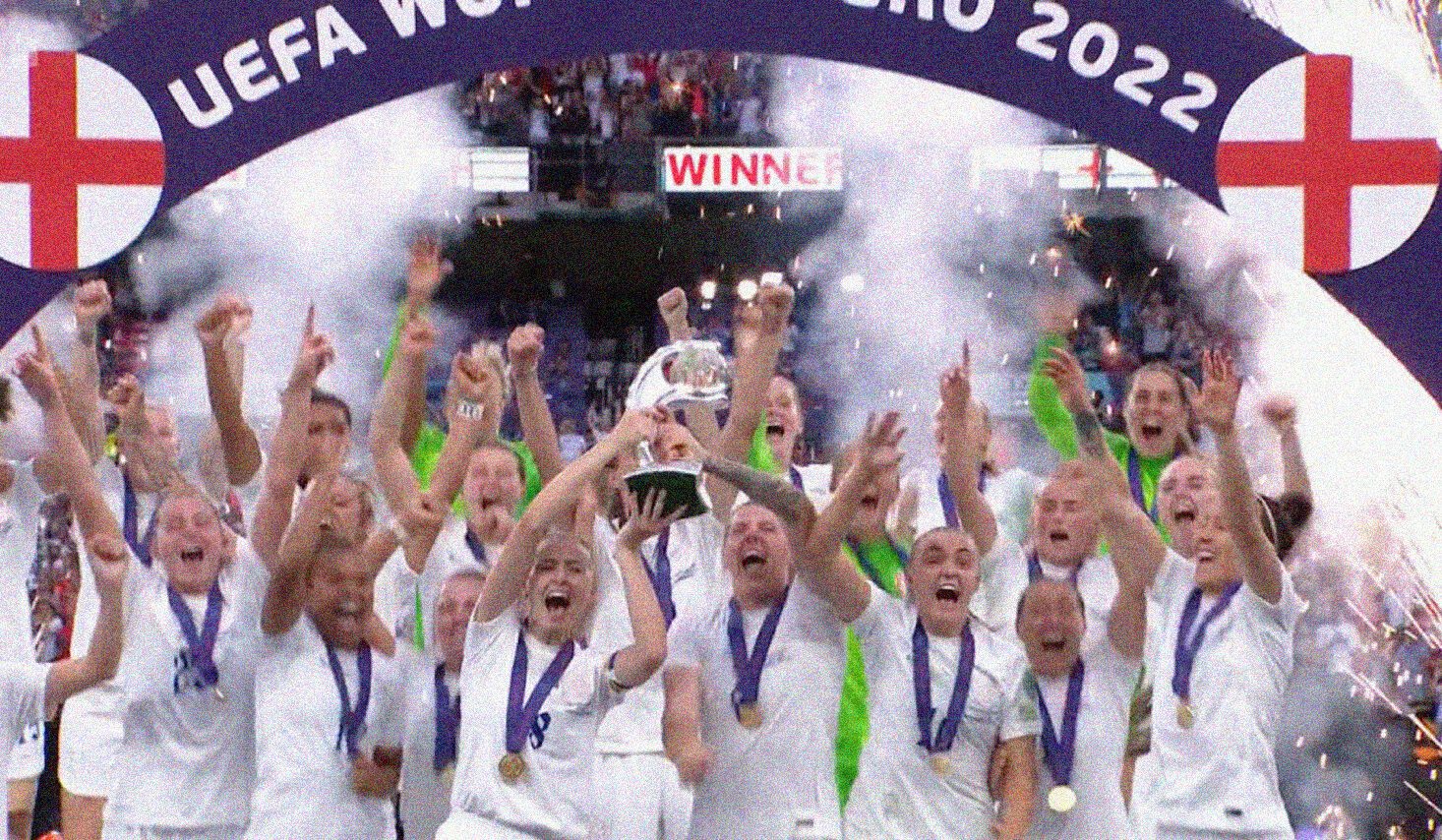
The last time England won a major trophy, women were banned from playing on FA affiliated pitches. Such was the success of women’s football during and post World War I – thanks to the likes of Dick Kerr’s Ladies, who attracted a 53,000-strong crowd a charity match at Goodison Park on Boxing Day in 1920 – that it was deemed a threat by the FA who declared football “quite unsuitable for females and ought not to be encouraged”. Women were subsequently banned from playing.
That quote is telling. Women’s physicality is constantly policed – gender stereotypes encouraged and in instances such as these, structurally maintained. And who are often the women at the forefront of confounding those limiting stereotypes of what it means to be a woman? Lesbians.
Banned for 50 years and confined to the margins, the history of women’s football has not always been an easy one. It was therefore the women on the margins of society itself who became the champions of the sport during that time.
Hackney Women’s Football Club was established in 1986 – the first totally women run and out team in the UK. Back then, a lesbian football team was crucial to ensure the game was inclusive. I managed the team in the late 90s and it was actually how I met my late wife. Football has always been a place for forging friendships and relationships for many women. “Are you Hackney players?” was code for ‘Are you lesbians and can we hang out with you?’ Lots of relationships in our community have stemmed from football.
Back in the 90s, we’d meet at The Bagel Shop on Ridley Road in Hackney. Our game has been built from the grassroots — travelling to somewhere random in West London, doing a u-turn in a convoy, in the days before SatNav, and getting in a beer at full time. Commitment, togetherness, game — often in the face of great hostility. But we persisted, and we loved it. This is what we’ve been waiting for.
Football can bring so much to your life socially as well as just physically. There is something really special about community, teamwork and camaraderie in grassroots football that is so important for girls and women to get the chance to experience. It’s something men have been doing for years and years, and it’s something I want to see women doing more of.
From those spaces at the margins, we’ve seen women’s football become more representative over the years. Social attitudes have developed; it’s not an issue to be ‘out’ in women’s football in 2022 as so many players haven’t been ‘in’. Despite its challenges to get mainstream recognition, women’s football has nearly always been a very inclusive game for lesbians. There are high profile women across the game, not just the Lionesses, who are out.
The flip side is that, over the years, there have been homophobic overtones that players need ‘feminising’ (Sepp Blatter and women wearing skirts to play anyone?). We should be focusing on football – not how the women look or worrying if they’re ‘too dykey’.
View this post on Instagram
Thankfully, there are lots of out women in football – including many to whom we owe a debt of gratitude for the development of the game – and that gives space for different types of women to get involved regardless of media pressures at the top levels.
The Lionesses are truly role models – they’ve shown that women can be physical, be out, play professional sport to the highest level, and break gender norms. We’ve seen that women can’t be put in a box, and gender stereotypes were thrown out of the window come 8pm on Sunday 31 July 2022.
You can’t be it if you can’t see it is an oft-bandied about phrase, but we can’t underestimate the impact of England’s historic win. It matters so much for so many little girls – they really can be who they are.
Women footballers have been getting on with being themselves, whoever they are, for such a long time and we know that being your authentic self ‘at work’ means you perform better. And wow, didn’t England women perform!
Serious issues around diversity of race and class remain – potentially a bi-product of ‘professionalisation’ and moving training to the suburbs, but it’s being addressed and as we continue to build, this is something we have to be very deliberate about going forward.
After the 2012 Olympics, there was a lot of talk about how things would change, not dissimilar to the momentum we’re feeling now. We thought it was the turning point for women’s football but it didn’t happen as we hoped. However, we now have the infrastructure in place, from the WSL to the FA’s strategic objective to ensure that every girl has the same opportunities as boys to play football at school by 2024, either in PE lessons or extra-curricular clubs.
Gabby Logan’s sign off from the BBC coverage said it all: “You think it’s all over, it’s only just begun.”
Chris Paouros is a trustee for Just Like Us, the LGBT+ young people’s charity – sign up now to volunteer. She is also trustee of Kick It Out and co-founder and co-chair of Proud Lilywhites.



